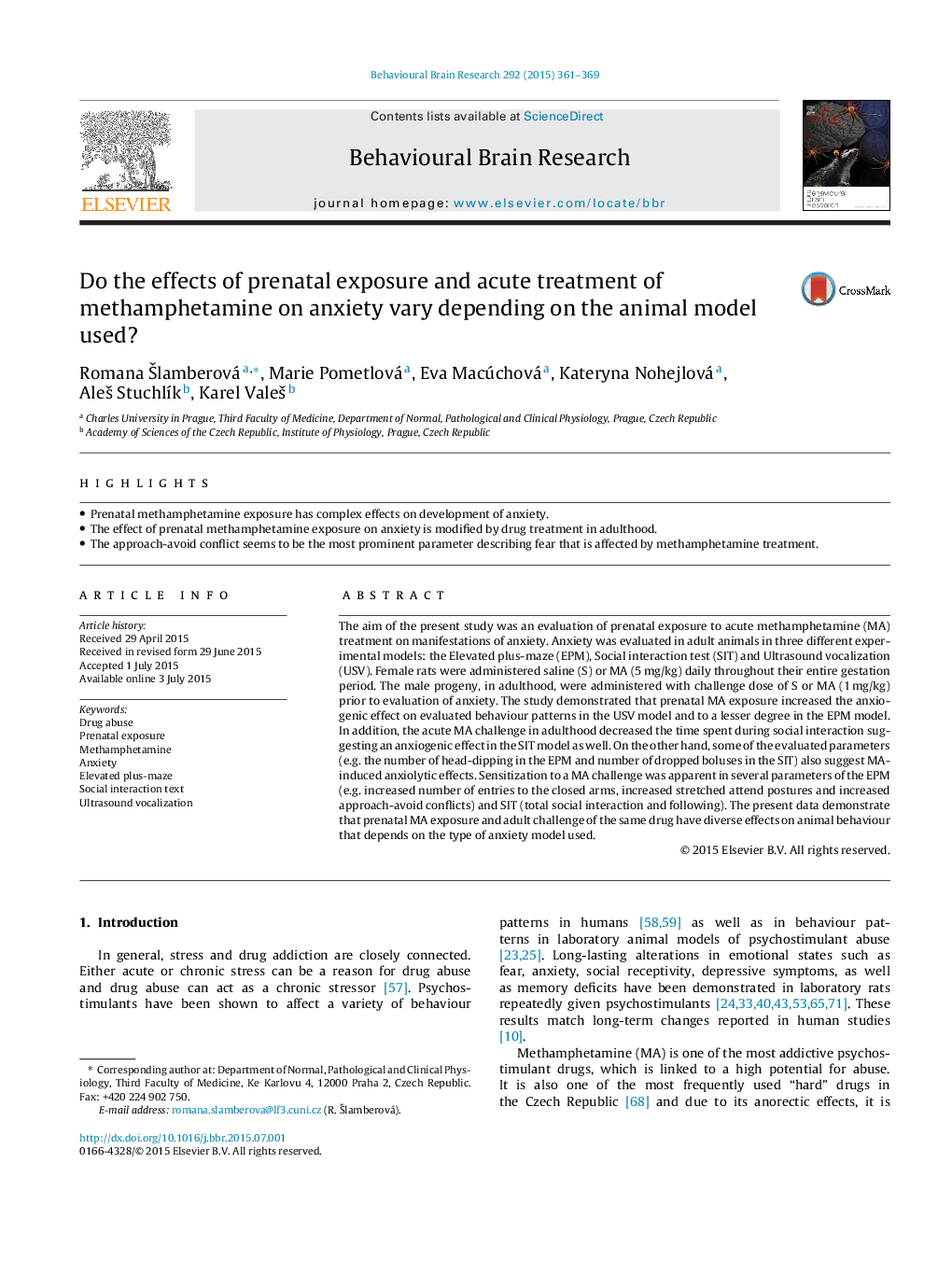| Article ID | Journal | Published Year | Pages | File Type |
|---|---|---|---|---|
| 6256527 | Behavioural Brain Research | 2015 | 9 Pages |
â¢Prenatal methamphetamine exposure has complex effects on development of anxiety.â¢The effect of prenatal methamphetamine exposure on anxiety is modified by drug treatment in adulthood.â¢The approach-avoid conflict seems to be the most prominent parameter describing fear that is affected by methamphetamine treatment.
The aim of the present study was an evaluation of prenatal exposure to acute methamphetamine (MA) treatment on manifestations of anxiety. Anxiety was evaluated in adult animals in three different experimental models: the Elevated plus-maze (EPM), Social interaction test (SIT) and Ultrasound vocalization (USV). Female rats were administered saline (S) or MA (5Â mg/kg) daily throughout their entire gestation period. The male progeny, in adulthood, were administered with challenge dose of S or MA (1Â mg/kg) prior to evaluation of anxiety. The study demonstrated that prenatal MA exposure increased the anxiogenic effect on evaluated behaviour patterns in the USV model and to a lesser degree in the EPM model. In addition, the acute MA challenge in adulthood decreased the time spent during social interaction suggesting an anxiogenic effect in the SIT model as well. On the other hand, some of the evaluated parameters (e.g. the number of head-dipping in the EPM and number of dropped boluses in the SIT) also suggest MA-induced anxiolytic effects. Sensitization to a MA challenge was apparent in several parameters of the EPM (e.g. increased number of entries to the closed arms, increased stretched attend postures and increased approach-avoid conflicts) and SIT (total social interaction and following). The present data demonstrate that prenatal MA exposure and adult challenge of the same drug have diverse effects on animal behaviour that depends on the type of anxiety model used.
